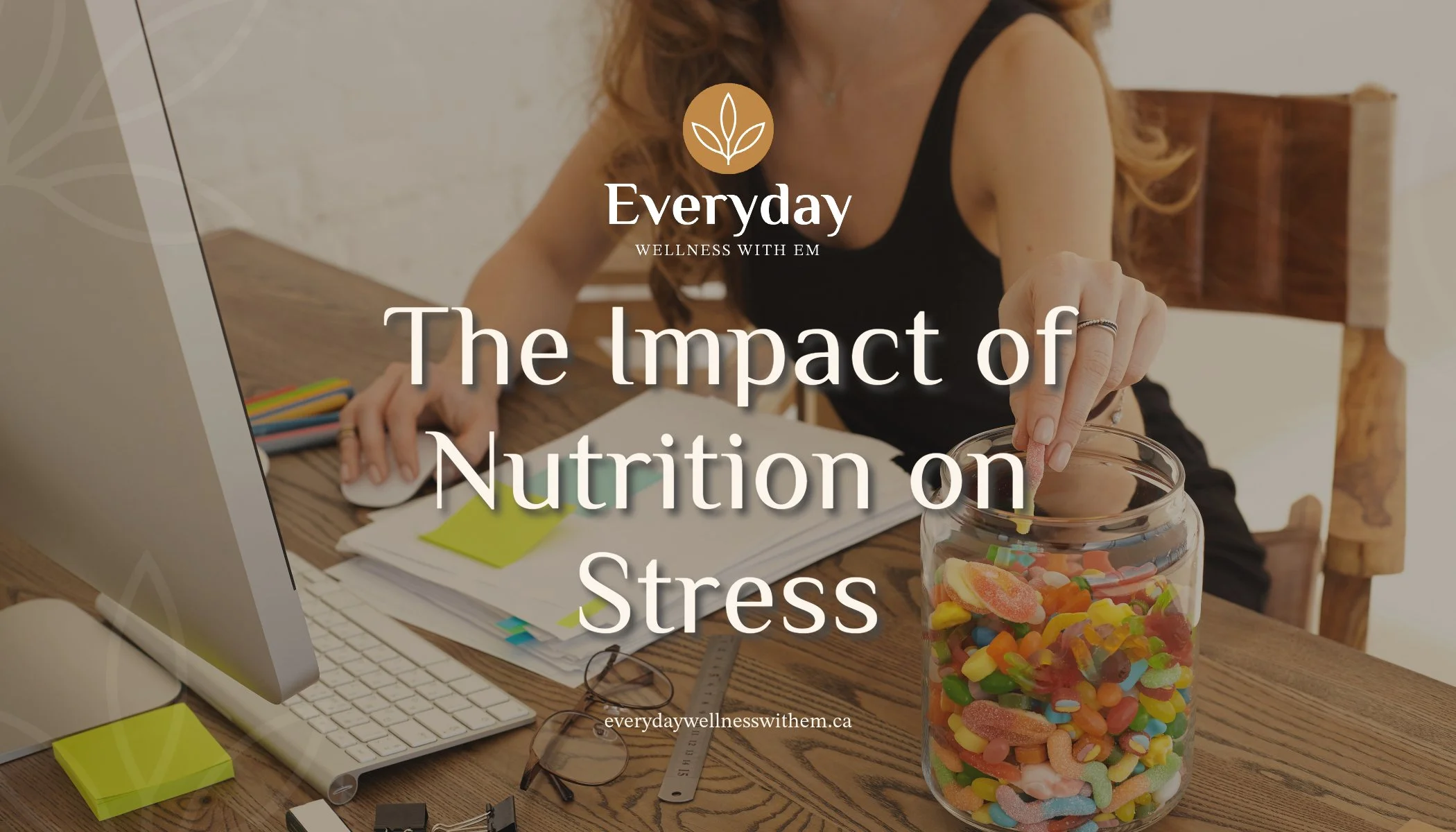The Impact of Nutrition on Stress
Nurturing Your Body and Mind Through Diet
When we think about stress, we often focus on external factors such as work pressure, financial burdens, or relationship difficulties. However, it's crucial to recognize the role that nutrition plays in managing our stress levels. The foods we consume directly impact our physical and mental well-being and making conscious dietary choices can contribute to a healthier response to stress.
Adopting a nutritionally balanced diet with vital nutrients can help regulate the stress response. Consuming adequate amounts of vitamins and minerals, particularly vitamin C, B complex vitamins, and magnesium, supports the body's ability to combat stress. These nutrients aid in hormone regulation, nerve function, and energy production, all of which are impacted by stress.
First and foremost, let's address the relationship between nutrition and our body's stress response. When we experience stress, our bodies release hormones like cortisol and adrenaline, which trigger the "fight or flight" response. While this response is critical in emergencies, chronic stress can lead to an excess release of these hormones, ultimately disrupting our body's balance.
Incorporating stress-reducing foods into our diets can work wonders for mental well-being.
Research has shown that certain foods can have calming effects on the brain, helping to combat anxiety and promote relaxation. Foods rich in Omega-3 fatty acids, such as fatty fish, avocados, and nuts, have been linked to lower levels of stress and improved mood.
What foods are rich in omega-3?
Fish and other seafood (especially cold-water fatty fish, such as salmon, mackerel, tuna, herring, and sardines) Nuts and seeds (such as flaxseed, chia seeds, and walnuts) Plant oils (such as flaxseed oil, avocado oil)
Maintaining stable blood sugar levels is also crucial in managing stress.
The consumption of refined sugars and processed carbohydrates can cause blood sugar spikes followed by crashes, leading to mood swings and increased irritability. By choosing complex carbohydrates like whole grains, legumes, and vegetables, we provide our bodies with a steady release of energy. This stable blood sugar helps to prevent mood fluctuations and keeps stress levels in check.
Hydration is another vital aspect to consider in stress management. Dehydration can amplify feelings of stress and anxiety, as well as impact cognitive function. Staying adequately hydrated by drinking plenty of water throughout the day allows our bodies to function optimally. It supports our brain's ability to cope with stress and gives us a sense of overall well-being.
In addition to making mindful food choices, creating a healthy relationship with food itself can also contribute to stress reduction. Adopting nourishing eating habits, such as eating mindfully, listening to hunger and fullness cues, and refraining from emotional eating, can improve our relationship with food. Incorporating stress-relief practices like yoga, meditation, or deep breathing techniques during meals can promote a relaxed state that enhances digestion and nutrient absorption.
While it may be tempting to turn to comfort foods when we are stressed, it is important to remember that these choices can often exacerbate the negative effects of stress on our bodies. Instead, focusing on incorporating nourishing foods into our diet and developing healthy coping mechanisms will help us effectively manage stress from within.
In conclusion, nutrition plays a significant role in how our bodies and minds respond to stress. By consuming a balanced diet rich in essential nutrients, stress-reducing foods, and staying hydrated, we can support our body's ability to manage stress more effectively.
Additionally, practicing mindful eating and adopting healthy coping strategies contribute to a holistic approach to nurturing our overall well-being. By prioritizing nutrition alongside other stress management techniques, we create a solid foundation for a happier and healthier life.




